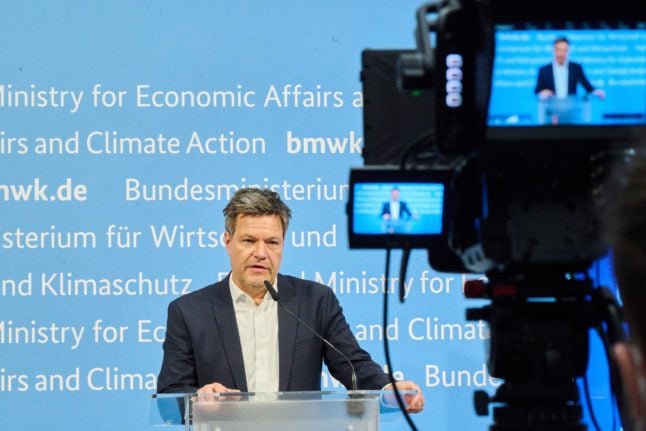Germany’s Federal Office for the Protection of the Constitution, the domestic intelligence service, opened an inquiry after senior ministry staff shared their concerns, according to weekly Die Zeit.
The ministry “cannot comment on individual cases”, a spokeswoman told AFP when asked about the report.
She added that new leadership at the ministry had “completely overturned the pro-Russian policy pursued until the change of government” in December last year.
Germany has set about reducing its dependence on fuel imports from Russia in response to the invasion of Ukraine in February, with the economy ministry central to implementing the policy shift.
The two civil servants drew the attention of colleagues by showing “sympathy for the Russian view” on questions of energy policy, notably on the decision to block the approval of the Nord Stream 2 gas pipeline from Russia to Germany, according to Die Zeit.
A close inspection of their resumes by authorities revealed that one of the two had studied in Russia.
The civil servants are said to have an “emotional proximity to Russia”, according to the report, though as yet authorities had no “hard evidence” of spying or corruption.
Germany has been rocked in recent years by a series of espionage affairs involving Russia.
Most recently, it was reported that German authorities had indications that Russian secret services spied on Ukrainian soldiers receiving training in Germany on Western weapons.
A German man is also currently on trial for allegedly passing information to Russian intelligence services while working as a reserve officer for the German army.
And last year, a German court sentenced a Russian man to life in prison for shooting dead a former Chechen commander in a Berlin park in broad daylight, a murder prosecutors say Moscow ordered.



 Please whitelist us to continue reading.
Please whitelist us to continue reading.
I think the most fitting question should be; is there anyone in this government that is not corrupt?
When the leader is in question its leads to decay amongst the ranks, which is what I think we see here. Statistically speaking a criminal has successfully committed at least one crime before being caught.